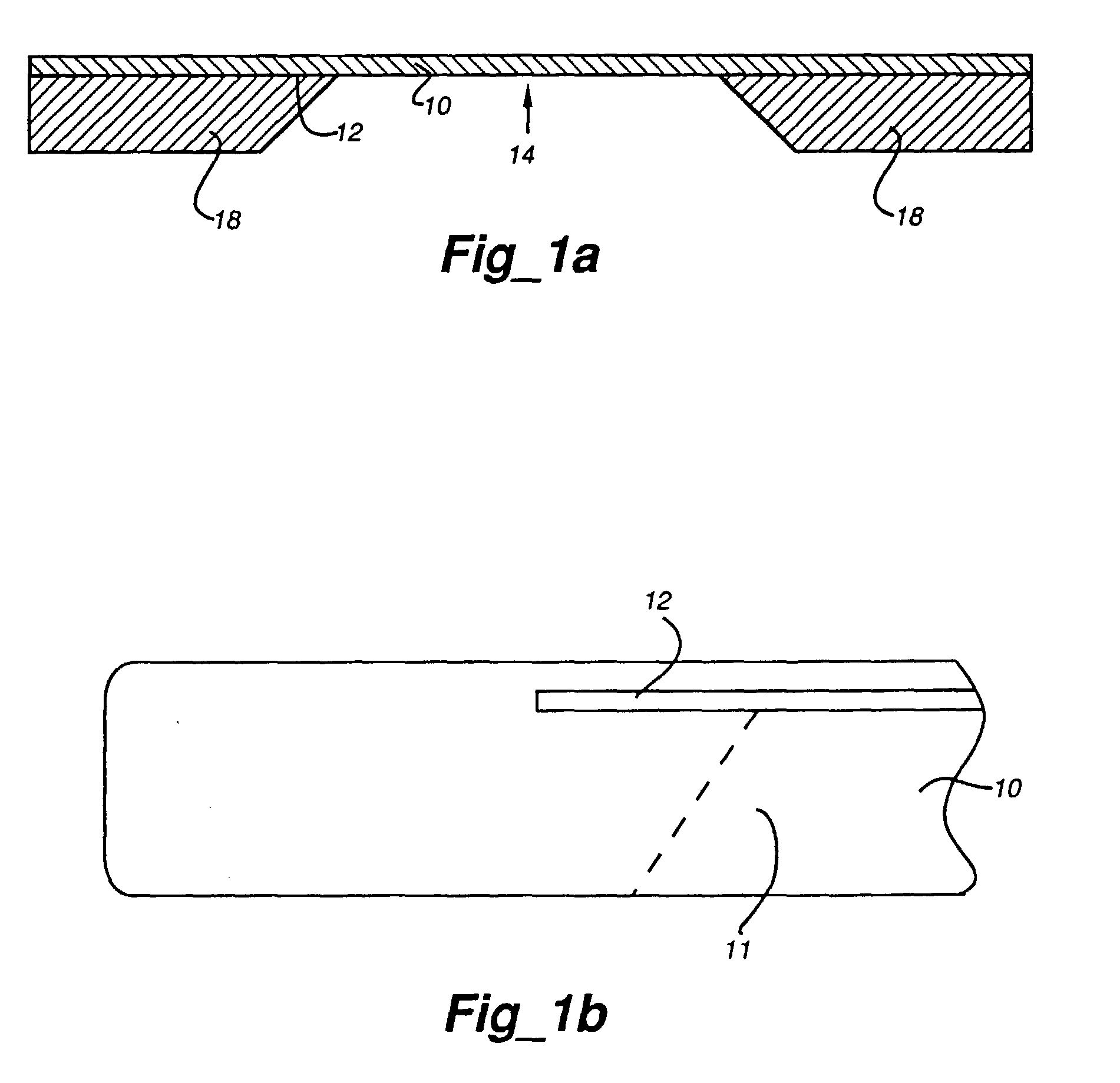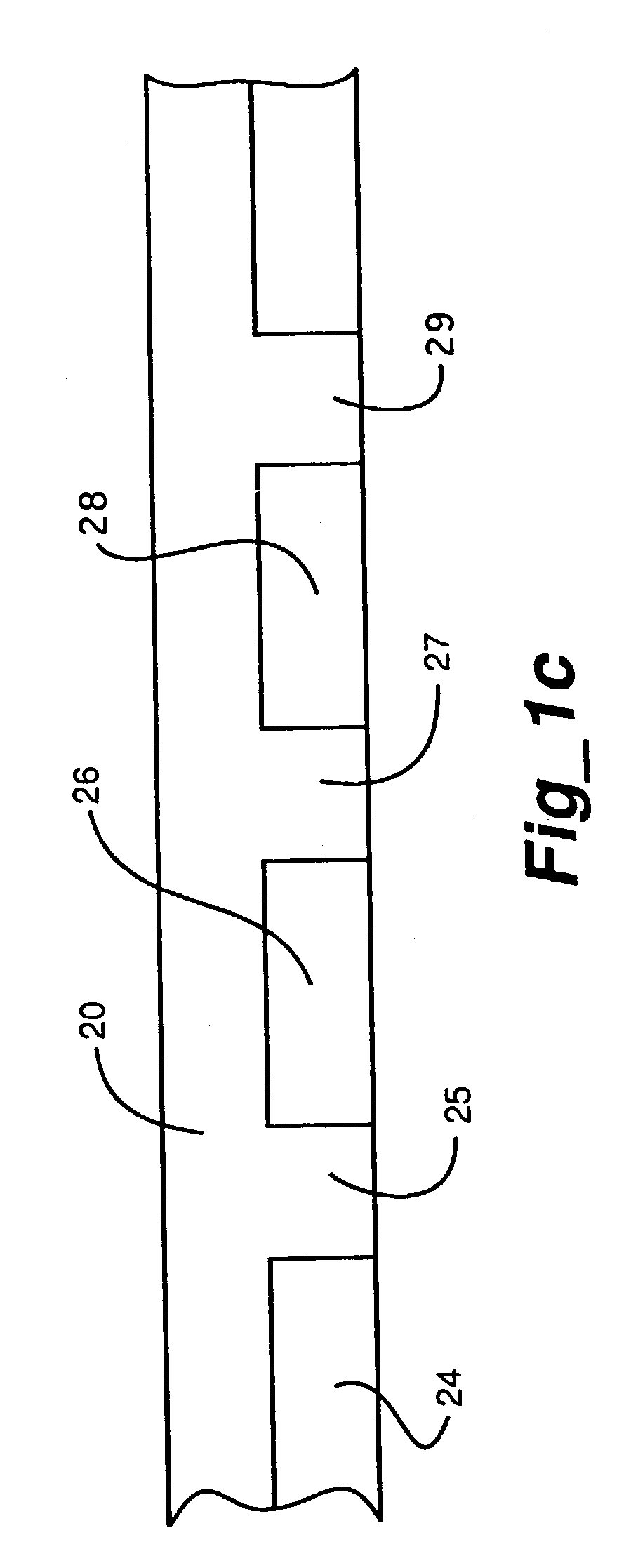Stress-controlled dielectric integrated circuit
a dielectric integrated circuit and stress-controlled technology, applied in the direction of instruments, photomechanical equipment, and semiconductor/solid-state device details, can solve the problems of significant number and complexity of processing steps presently used, and achieve the effects of reducing processing complexity, reducing processing costs, and reducing device isolation processing steps
- Summary
- Abstract
- Description
- Claims
- Application Information
AI Technical Summary
Benefits of technology
Problems solved by technology
Method used
Image
Examples
Embodiment Construction
The MDI process is the formation of an IC or interconnect metallization circuit as a free standing dielectric and / or semiconductor circuit membrane. Each semiconductor device comprising an IC circuit membrane is a semiconductor device optionally isolated from adjoining semiconductor devices, and where each semiconductor device is formed on or in a membrane of semiconductor material typically less than 8 μm in thickness. The overall thickness of a circuit membrane is typically less than 50 μm and preferably less than 8 μm. The dielectric membrane is compatible with most higher temperature IC processing techniques.
MDI Fabrication Process
Several process variations can be used to form the thin film or membrane of semiconductor material for use in the MDI process. Additional related methods for forming semiconductor membranes may exist or come into existence and are included in the MDI technology.
Examples of some of the methods that can be used for forming silicon single crystal t...
PUM
| Property | Measurement | Unit |
|---|---|---|
| Temperature | aaaaa | aaaaa |
| Length | aaaaa | aaaaa |
| Thickness | aaaaa | aaaaa |
Abstract
Description
Claims
Application Information
 Login to View More
Login to View More - R&D
- Intellectual Property
- Life Sciences
- Materials
- Tech Scout
- Unparalleled Data Quality
- Higher Quality Content
- 60% Fewer Hallucinations
Browse by: Latest US Patents, China's latest patents, Technical Efficacy Thesaurus, Application Domain, Technology Topic, Popular Technical Reports.
© 2025 PatSnap. All rights reserved.Legal|Privacy policy|Modern Slavery Act Transparency Statement|Sitemap|About US| Contact US: help@patsnap.com



